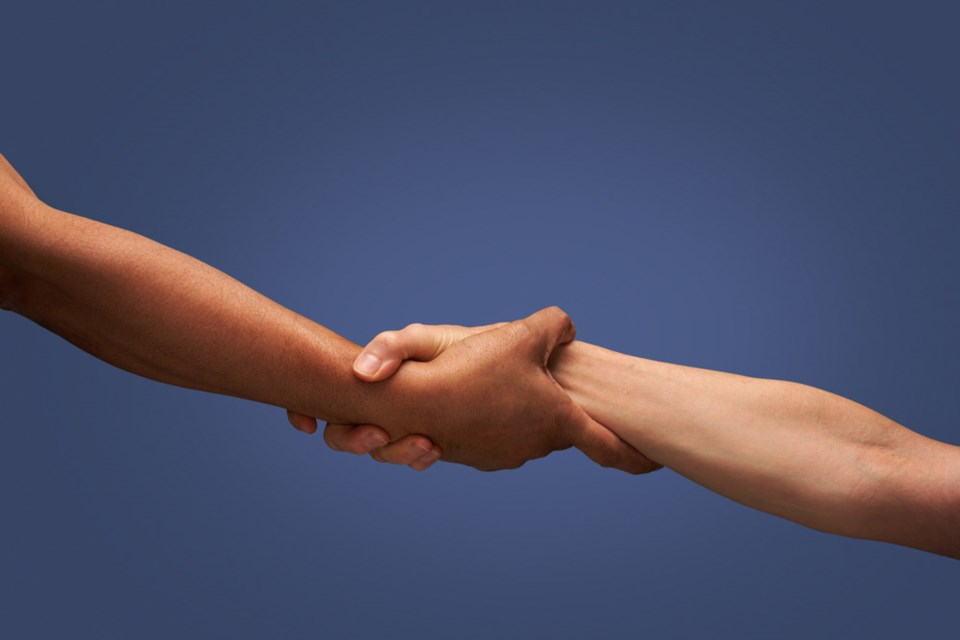Quite often when I cover fundraisers in the community I keep thinking, what would happen if people wouldn't be stimulated to help others?
It seems that in capitalist societies in the 21st century, help, be it physical or monetary, became one of the services, and just like any others, it is something that we exchange for money or other incentives.
Back home and also more so back in the day, when someone was fixing a roof on a cabin, neighbours and friends would show up to help. Sometimes, they would stay for a thank-you meal or a drink at the end. But there was no expectation of remuneration, even when it'd take hours or days of work.
It was tougher times (at least in the 90s that I can remember), and most people didn't have anything extra for special occasions. So, when someone was having a birthday or a wedding, it was absolutely normal to borrow some chairs, a table or even cutlery to ensure there was enough of everything for everyone invited.
It was also completely fine to knock at the neighbour's door and ask for some salt, or an egg, or whatever else you realized you were missing for a supper you were making.
During Soviet times, when someone was moving (and at that point, not every family had any kind of car, let alone a working one) it was normal to have everyone around helping, including a passing-by stranger who could be asked to give a hand with dragging a huge cupboard or moving a home library.
No money was ever involved in any of those. Help was something people would do for each other just because. But then they also knew that when they would need help, there would be enough good folks to give them a hand.
I recently came across an interesting story.
Apparently, our drive to help each other was the first sign of civilization in a culture, according to American cultural anthropologist Margaret Mead (1909-1978). Well, not directly.
A student asked Mead what the first sign of civilization was, in her opinion. First tools? Clay pots? Rock carvings? A 15,000-year-old broken femur that has healed, she responded. With no medicine, this longest bone in the body takes about six weeks of rest to heal. The found fractured and healed bone meant that another person decided to stay with the fallen, bound up and treated the wound, carried the person to safety and stayed with them helping through recovery.
In the animal world, if you break a leg, that's the end. Before it can heal, an animal, devoid of the ability to escape dangers and hunt for food, becomes food for predators itself.
The human world started with one person potentially risking their own life while helping another one.
"Helping someone else through difficulty is where civilization starts," Mead said. "Never doubt that a small group of thoughtful, committed citizens can change the world; for, indeed, that's all who ever have."
The tendency to help is part of human nature and it's been one of the fundamentals for our survival. We genetically are built to support each other through whatever life has for us, and we've been doing it for thousands of years.
While we still do help each other all the time, I feel that now it looks a bit different.
In a society where things are done in exchange for money, the notion that everything has to be paid for has almost overwritten our ancient instincts. We now need incentives to support and help. We want fun events in exchange for our donations, we want tax breaks, recognition or simple payments.
While fundraisers are indeed usually fun, how often do we actually help others without being reminded, stimulated and not expecting any payment or engagement in exchange?
I'm blessed with great neighbours, who, I know, are there to help when it's needed. I also have a farming family here, which sticks to those traditions where help comes without payment expectations. And I often hear stories about neighbours cleaning snow or cutting grass for each other just because.
But I also often feel that pure help is not a rule of thumb anymore. When has that change happened? You, my readers, probably would know better. I know in the old country it started happening recently and hasn't shifted completely.
Here, with some examples of an old-style approach to help, the process hasn't been completed either, but when comparing the two worlds I've experienced firsthand, I'd say it's definitely at a farther stage.
Does it mean that one day we all will move away from naturally helping each other at no cost? Hopefully not. After all, helping others has many great benefits, from giving us a sense of happiness, purpose and meaning, to lowering our blood pressure, according to some research.
But I'm confident we all can exercise pure help more often, just so it doesn't become an atavism and we don't lose that wonderful feature and the first sign of our civilization.




